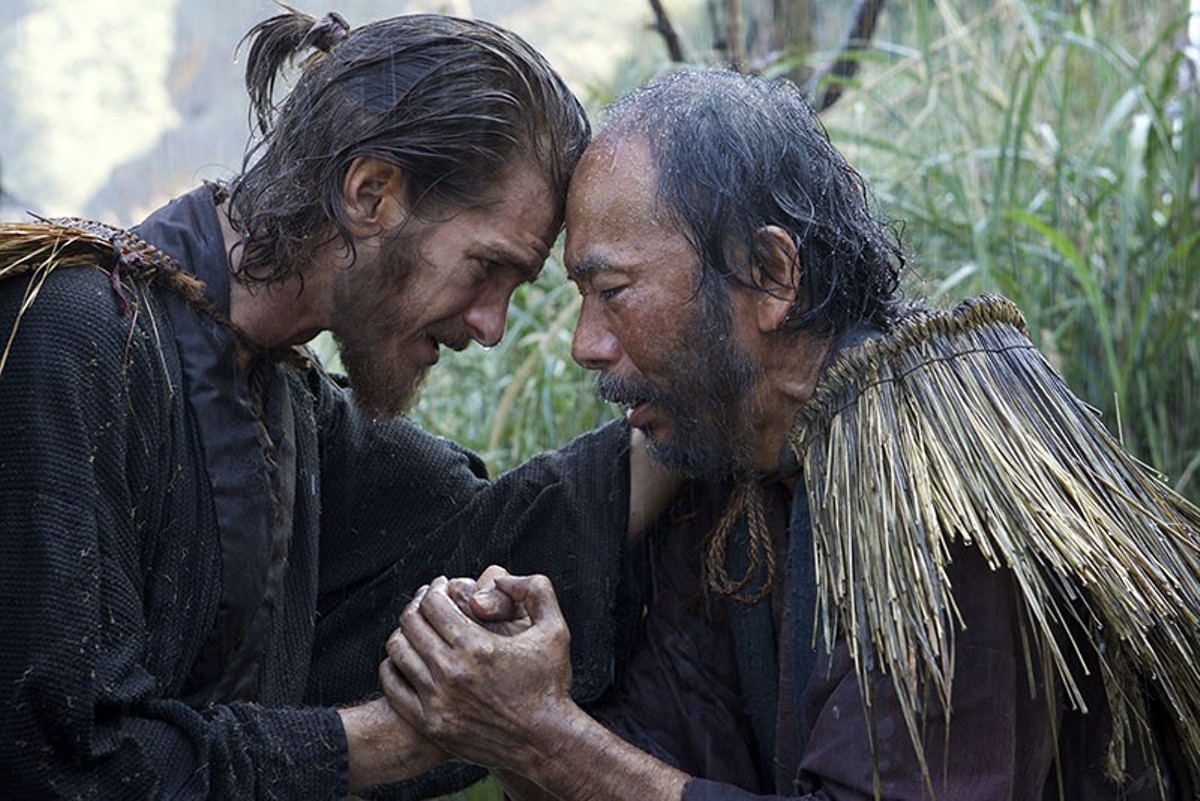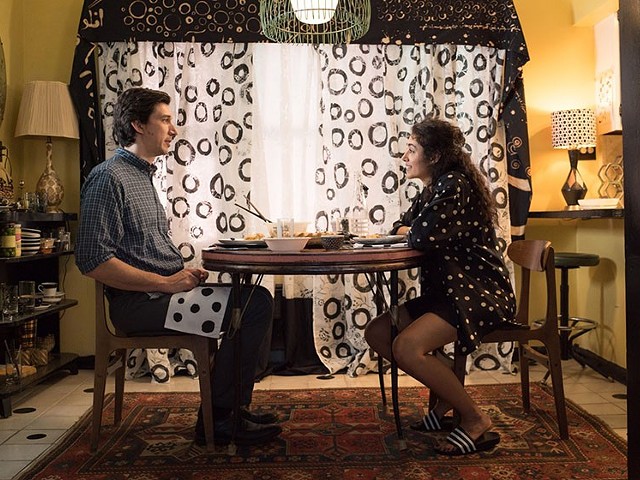Silence is a longtime passion project for Martin Scorsese: He has been struggling to bring Shusaku Endo's 1966 novel to the screen for almost 30 years. I suppose we could see a reflection of the movie's story itself, such as it is, in that. When Portuguese Jesuits Father Sebastião Rodrigues (Andrew Garfield) and Father Francisco Garrpe (Adam Driver) arrive in Japan in 1639, they find the faithful driven into hiding and ruling warlords trying to crush all vestiges of Christianity, which had been introduced in the sixteenth century. With our historical hindsight we can see this oppression as a justifiable fear of their own culture being smothered by a Jesus wielded by colonial-minded Europeans.
Rodrigues and Garrpe have come on an expedition to find and redeem their mentor, missionary Father Cristóvão Ferreira (Liam Neeson), who has disappeared into the country and is rumored to have renounced his faith and taken up living as a Japanese. But they soon get sucked into tending to the neglected Japanese Christians and negotiating often violent philosophical standoffs with the local powers that be, most notably Inquisitor Inoue Masashige (Issei Ogata). Eventually, the two priests are separated, and Rodrigues is left alone, clinging to his faith in God in a society extremely hostile to such belief, and he gets utter silence in return when he speaks to God.
Now, there are certainly all sorts of earthly ramifications of the adherence to religion (any religion), such as how it shores up political power. Silence is not about that. There are also all sorts of interesting stories to be told about how religion perpetuates itself; the notion that doubting a meme only fuels the prestige of holding onto that meme is a brilliant way for an idea to propagate amidst skepticism! Silence is not about that, either. There are horror stories to be found in religious belief, in how otherwise intelligent people will suffer and die for a fantasy. We can't exactly say that Silence does not see this, because there is an awful lot of torture of Christians occurring onscreen here: Scorsese is brutally frank about the horrifically violent deaths Japanese Christians were put to by the warlords if they would not renounce Jesus Christ. (The Catholic Inquisition did not have a monopoly on sadistic cruelty.) But Silence is about that only tangentially: Many mostly anonymous Japanese people are slowly tortured and killed here in the cause of — in the context of the film — a white man's spiritual journey, for Rodrigues is forced to witness their agony, a consequence of his refusal to renounce Jesus.
And Silence is only about Rodrigues clinging to faith — not how he manages that. Not even why. Just that he does. It would be nice to clue in the rest of us about how so many people are able to pull off such a feat, but Silence presupposes that the viewer shares the same devotion, which, in increasingly secular Western society, is a poor assumption to make. (I don't think that's true of Scorsese's other religious film, The Last Temptation of Christ, which I love.) The film acknowledges that it is for English-speaking audiences; no one is speaking Portuguese or Japanese here (and the accents waver all over the place; Garfield sounds Irish more often than not). So why can't Silence cope with the fact that not many people are this devout? Even many people who consider themselves religious would, I suspect, be unable to maintain their faith in such extreme circumstances.
But the more Rodrigues' faith is pressed — and at almost three hours in length, Silence does quite a bit of pressing — the more implausible it feels. We never really understand him as a character. If anything, we start to wonder if Rodrigues really isn't a very nice person after all: How much arrogance does it require to presume that God is allowing the torture of innocent people merely so that your faith can be tested?
Scorsese lets iconography and allusion stand in for character. Rodrigues starts to look more like an idealized Jesus as his persecution goes on; here are some pieces of silver for the Japanese Christian who sold out the Jesuits to the warlords. The director portrays the Inquisitor as verging on comic — he's almost a bucktoothed caricature of Asians out of shameful early Hollywood — as if, perhaps, to suggest that he's no true threat to a devout Christian.
There isn't actually much of a journey in Rodrigues' journey. He's not even intriguingly stubborn, merely stolidly unchanging. Silence may be meant as a tribute to a living faith, but it's little more than a slog through unimaginative single mindedness.






